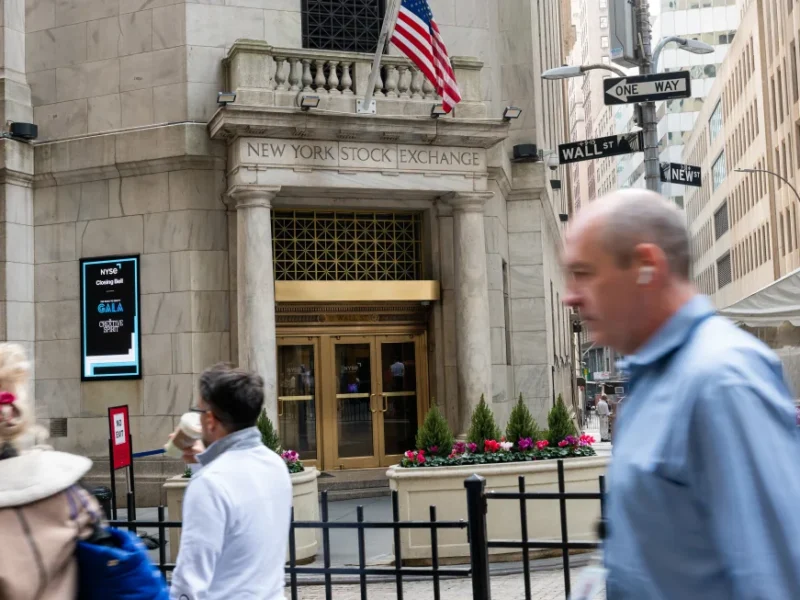US stocks ended Friday significantly lower as concerns grew over escalating tensions in the Middle East, prompting traders to seek refuge in safe-haven assets such as bonds and gold.
The Dow dropped by 475 points, or 1.2%, having dipped over 500 points during the day. The S&P 500 and the Nasdaq Composite also saw declines of 1.5% and 1.6% respectively, with all three major indexes closing the week on a downward trend.
The White House issued alerts regarding potential attacks by Iran or its allies, following an Israeli strike in Damascus. Oil prices surged on Friday due to heightened regional tensions exacerbated by the conflict in Gaza. Brent crude settled at $90.45 a barrel, stepping back from its recent peak, while West Texas Intermediate reached $85.66.
Chicago Federal Reserve President Austan Goolsbee highlighted the Middle East tensions as a wildcard, expressing concerns over potential spikes in inflation and production costs, which could lead to a stagflationary environment.
Investors turned to haven assets amidst geopolitical uncertainties and rising oil prices. Gold futures reached $2,356.20 per troy ounce, falling from an earlier record high. Treasury yields decreased as traders sought safety in bonds, with the iShares Core US Aggregate Bond ETF rising by 0.3%.
CNN’s Fear & Greed Index, reflecting market sentiment, closed at a “neutral” level, down from a “greed” reading in the previous close.
Market anxieties are further fueled by bank earnings.
Investors are also closely monitoring the beginning of the first-quarter earnings season. JPMorgan Chase CEO Jamie Dimon cautioned investors on Friday about the impact of geopolitical tensions and ongoing inflation despite encouraging economic data. Dimon highlighted Russia’s conflict with Ukraine as a particular concern, emphasizing the potential repercussions on the global economy if oil and gas prices rise excessively.
Following the release of the bank’s first-quarter results, JPMorgan Chase shares experienced a 6.5% decline on Friday.
These worries about geopolitical instability coincide with an already challenging period for investors, who are grappling with concerns that persistent inflation might delay the Federal Reserve’s interest rate hikes. While some Fed officials have suggested that rate increases are still possible if inflationary pressures persist, it remains unlikely unless the central bank’s progress in addressing inflation falters.
In addition, recent data indicates a decline in Americans’ economic optimism over the past few months, influenced by ongoing inflationary pressures. The University of Michigan’s latest consumer survey, released on Friday in a preliminary reading, revealed relatively stable sentiment in April.
Following the close of the trading day, slight fluctuations in stock levels may occur.











